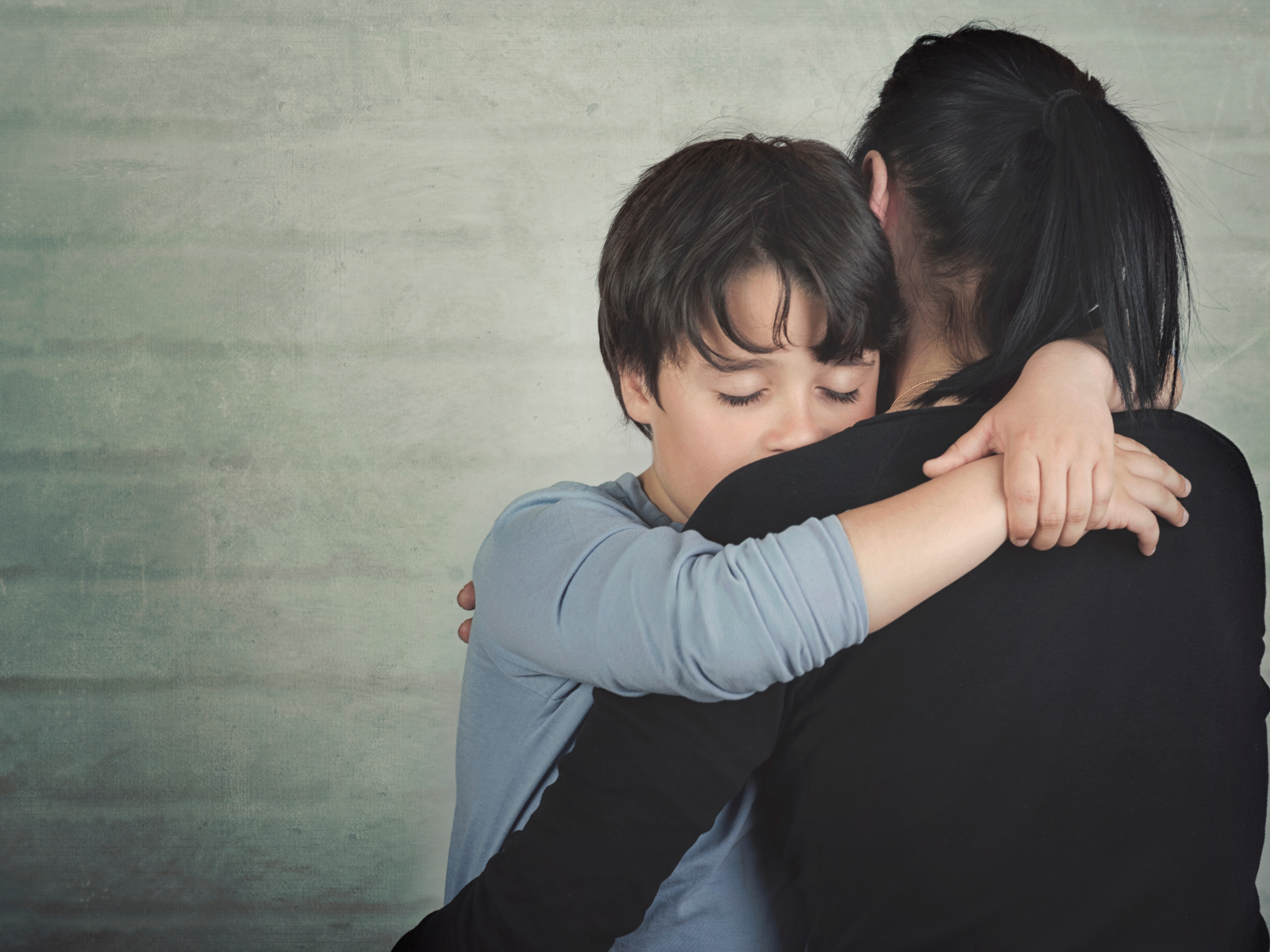Recently, a friend confided in me that she and her husband had been having an argument, and while they thought they had successfully hidden it from their 5-year-old, that night the little one woke up crying and riddled with guilt thinking it was their fault Mommy and Daddy were mad.
Conflict is a normal part of life and even the best couples experience it as part of an evolving relationship. But when you are a parent those conflicts often have an observant and sensitive audience. So how do you navigate the crossroads?

A generation ago the common wisdom was “never argue in front of the kids,” and while children who witness regular intense altercations between adults are found to have had a higher risk of depression and behavioral issues according to a 2012 NIH study, there is a growing body of research that suggests that children who witness constructive conflict resolution between their parents have better coping skills and healthier relationships later in life. And let’s be honest, it’s nearly impossible to hide every argument from your kids.
So if the dinner table conversation takes a turn in front of them, here are a few suggestions to help you keep the conflict constructive and set a good example for impressionable young minds.
Have disagreements not fights: Disagreements are normal and healthy. They are about resolving a problem respectfully even if people have heightened emotions and passionate feelings on a topic. A fight is about winning and getting your way and often involves yelling and name-calling. If you can keep it to a respectful disagreement and let them see the process of how loving people come to a solution together, this can be a wonderful learning moment. But if it is devolving or the topic is not child appropriate…
Have a keyword/phrase: Talk with your partner ahead of time and choose a phrase or word you can drop into any conflict if it is escalating to a fight. This signals that you are going to take a break and finish the discussion away from the kids. It is a way of hitting pause before hurtful things get said and gives you time to resolve the issue. Just make sure you tell the children what is happening. “Mom/Dad and I have different opinions about this and that ok. We are going to take a little break and we will talk this out later after we calm down. We love each other very much and just need some time to think about this before we make a decision that is good for everyone.” This actually models doing what we often ask kids to do in a heated situation: Take a time out to think!

Follow up: After a resolution is found, tell the children what you decided and let them see that the family unit and your relationship with each other are still stable. This doesn’t need to be a big dramatic announcement. Just a sentence or two will usually do the trick: “I know last night at dinner was a little uncomfortable, but we listened to each other and together we decided XYZ.”
Reestablish normal loving behavior: Let them see you do the things you always do together or as a family. Don’t fake it or put on a show, just act naturally towards each other. Hold hands, cook, tell jokes, play board games or read a storybook all together. This sets the precedent that disagreements don’t end a relationship, they can strengthen it.

Talk to them about their feelings and yours: Don’t pretend to be fine if you are upset, especially if a conflict stretches over several days. Not acknowledging your real feelings and the tension in the home can cause children to question their own observations and feel like they need to hide their “negative” emotions. That can be very stressful and destabilizing. Let them know you are feeling a little sad/angry, etc., but that you and your partner are working on the problem so everyone can feel better soon. Reiterate that you love each other and that you love your child and that everything is going to be ok.
If your child is particularly sensitive to what they saw or experienced it’s okay to dive deeper. Ask them to identify their feelings and how it manifested in their bodies, for example: “I was sad when you got angry and it made my tummy tight.” Acknowledge that and then help them understand that it is ok to have different opinions from others, and that sometimes we need to talk about the uncomfortable things to help us solve the problem. If they are older and understood the topic of disagreement, ask them to explain both sides of the argument. This can help them build empathy and see why people responded so strongly in the moment.

If you do slip up and fight in front of them: Don’t worry. One poor experience won’t do long-lasting damage. The NIH study indicated that it’s only after repeated and consistent exposure to aggression that children exhibit the unwanted side effects. Just make sure that after you and your partner calm down you apologize to each other in front of the child and accept each other’s apology. Then explain what you will do differently next time there is a disagreement. Showing them that everyone, including moms and dads, makes mistakes. But forgiveness can help us learn and do better next time.

Find a coach: As always, this article provides very well-intentioned but generic advice. If you consistently have conflict resolution issues in your home, consider seeking professional counseling and tailored advice to your situation. This can be especially helpful if you yourself did not have a model for healthy arguments growing up or if you and your partner just have different communication styles. Conflict resolution is a skill and like all skills it can be learned, you just may need to find the right teacher.
KEEP READING: Restaurants Are Reopened: Where’s Beijing’s Foodie Emperor Heading First?
Images: Canva




